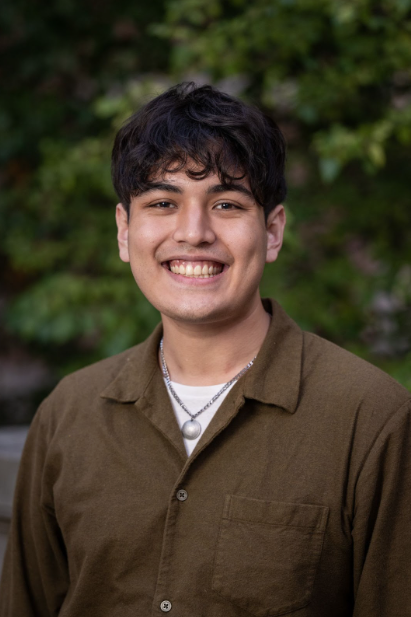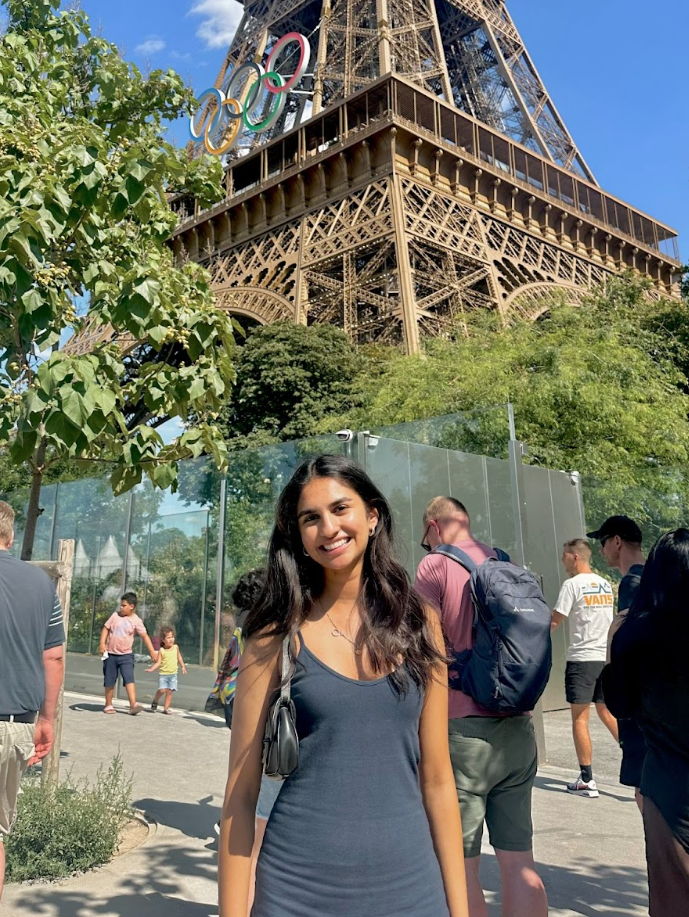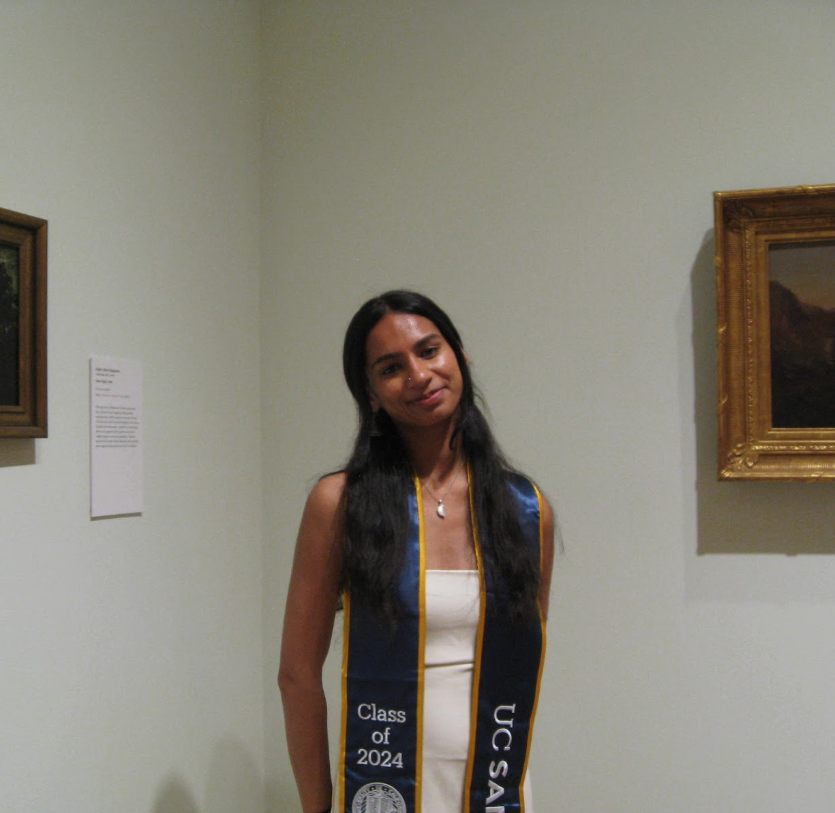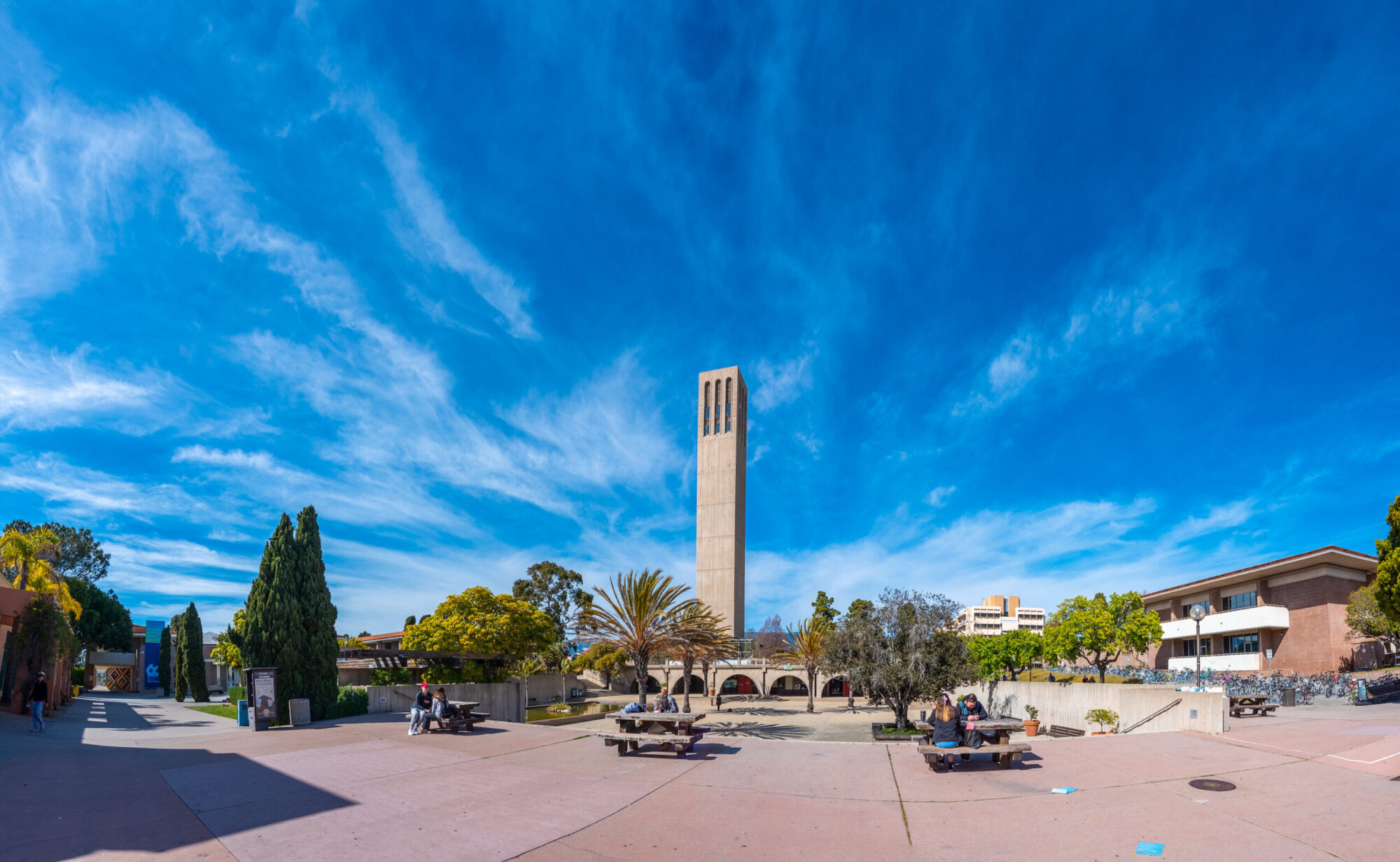UGH: A Newsletter (Winter 2025).
History Here (upcoming events)
History Club Weekly Meeting – Every Tuesday @ 7 PM!
The History Club has an exciting lineup of events you won’t want to miss. Follow @ucsbhistoryclub to stay updated on everything we have planned.
Art Reception – Kababaihan: Art Through Feminism and Women’s Wisdom with PinaySphere
📅 Date: February 13th
⏰ Time: 6 PM – 7:30 PM
📍 Location: MCC Lounge
The MCC Winter 2025 Art Exhibition’s theme is “Kababaihan: Art Through Feminism and Women’s Wisdom,” which celebrates the power of feminism and women’s collective wisdom through art! The term “Kababaihan” translates to “womanhood” or “femininity” in Tagalog. Featuring works from diverse artists in PinaySphere, “Kababaihan” explores themes of empowerment, resilience, and the transformative role of women in shaping our world. Join us to engage with inspiring art and conversations that honor women’s stories and contributions.
DoosTrio: Three Masters and Friends in a New Collaboration
📅 Date: February 19th
⏰ Time: 8 PM
📍 Location: Campbell Hall
With a name inspired by the transliteration of the Farsi word for friend, DoosTrio’s Kayhan Kalhor, Wu Man, and Sandeep Das join together in a new collaboration that highlights the ancient traditions of Iran, China and India in a distinctly 21st-century program. A virtuoso on the kamancheh, Kalhor has been uniquely influential in popularizing Persian music in the West. Wu Man is the world’s premier pipa virtuoso and a leading ambassador of Chinese music. A Guggenheim Fellow and a Grammy winner, tabla master Das debuted at age 17 with legendary sitar player Ravi Shankar and has since built a prolific international reputation spanning three decades. All three performers are veterans of the world-renowned Silkroad Ensemble.
📅 Dates: February 20th
⏰ Time 6 PM – 7 PM
📍 Location: Alhecama Theatre (215 E. Canon Perdido Street, located in El Presidio de Santa Barbara State Historic Park)
How does colonialism work without a strong colonial state? How does religious conversion work without an effective missionary project? How can historians work with an archive full of fictions? This talk explores the complex and contradictory ways in which Christianity, Spanish colonialism, and Indigenous politics came together to produce a new kind of society to the disappointment of everyone involved. This “new society” is contextualized by the history of the Muisca peoples of the Northern Andes (in what is now Colombia), who found themselves at the centre of efforts by Europeans to transform them into Catholic, tribute-paying vassals of the Spanish crown since the 1530s.
Public History Colloquium – The Historian as Detective: The Case of the Consulting Historian
📅 Dates: February 21st
⏰ Time: Noon (12 PM)
📍 Location: HSSB 4041
Join Shelley Bookspan, a graduate of UCSB’s Public Historical Studies program, as she talks about her extensive and varied career as a consulting historian. Learn tips and guidance about careers in consulting from Bookspan, who has spent 40 years as a consulting historian. After building her own national consulting company, primarily focusing on matters involving environmental liability disputes, Dr. Bookspan now serves as Principal Consultant for History Associates, Inc., one of the country’s foremost and most diversified history-based firms.
Artist Lecture – “The Signal” | Dario Robleto
📅 Dates: February 22nd
⏰ Time: 3:30 PM – 5 PM
📍 Location: Mary Craig Auditorium @ The Santa Barbara Museum of Art
Texas-based artist Dario Robleto is a deep-diving conceptual artist, who craftily fuses and confuses layers of history, culture and the natural order of the cosmos. His solo exhibition Dario Robleto: The Signal, on view at SBMA, highlights the artist’s multiyear exploration of the Golden Record, a gold-plated phonograph recording containing sounds and images selected in the late 1970s by NASA team to represent life on Earth to the extraterrestrials that discovered it. The third and final installment in a trilogy of video and sound installations that comprise Robleto’s years-long investigation of scientific and philosophical attempts to capture human life, the 70-minute film Ancient Beacons Long for Notice imaginatively documents the moral tension and practical challenges towards forging the Golden Record. How in the materialized traces of humanity does one record all the richness of what it means to be in love, to be worried, to be in war, much less the textures of our emotional lives?
Please email history-undergrad-journal@ucsb.edu if you want your event highlighted in our newsletter!
The Latest (Research Spotlight)

We’re thrilled to showcase the incredible talent featured in our Fall 2024 issue, where we published the works of nine outstanding writers. Among them is Michael Kosei Delphia, an Asian Studies, Economics, and History major at the University of Michigan Ann Arbor, Class of 2025. His primary research interest is populist and nationalism in Japan, Korea, and northeast China throughout the 1930s, along with how these currents affect Asia today.
In his paper, “Resisting the Rightward Turn: Marxist Analysis of Imperialism in Early Shōwa Japan,” Delphia examines the ideological shift of Japanese communists from the mid-1930s through World War II, challenging the prevailing “slippery slope” narrative of inevitable defection to nationalism and imperialism. By analyzing Japanese-language communist periodicals and party newspapers, the paper sheds light on the strong anti-imperialist rhetoric and Leninist theoretical complexity within the Kōza-ha and Nōro-ha factions. Delphia ultimately argues that the turn to imperialism cannot be easily explained through theoretical failings or inevitable subsumption into Japanese nationalism in the pre-WWII era, and that further research into the rhetoric and theories of the Japanese pre-war Left can complicate the “slippery slope” narrative. Hear it explained in his own words here!
Want to read more? Check out the full published version! Follow @mikey.delphia on Instagram to see what he is up to now!
Microhistories
Are you eager to get published but want to start small? Here’s your chance! The UCSB Undergraduate Journal of History proudly presents Microhistories, an exciting opportunity for students to showcase their research.
Submit a Public History Blog (1,000 words) or a Deep Archival Dive (500 words) and take your first step into academic publishing in a low-stakes, supportive environment. Gain valuable experience with the publication process while getting featured in our newsletter and on our website!
Don’t miss this opportunity to share your voice, hone your skills, and get your work out there!
Learn more and submit your Microhistory here!
Honors Course Crashing (Theses)

UCSB is home to an incredible history department, and these students are hard at work on their History Honors Theses. Let’s find out what they are working on. Today, we feature Manasi Chintalapahti, Let’s hear what she had to say:
Q: What is your honors thesis all about? A: Section 3 of the Fourteenth Amendment, known as the disqualification clause, has not been considered a contentious Constitutional provision. That was until January 6, 2021–when a violent insurrection against the United States Capital occurred. Section 3 bars an individual who has taken an oath to protect the Constitution and subsequently committed an insurrection against the United States from holding public office. My honors thesis argues that the Supreme Court cases stemming from the January 6th insurrection–Trump v. Anderson (2024) and Trump v. United States (2024)–are inconsistent with the “history and tradition” of legal disqualification as understood by historical actors throughout United States history.
My thesis explores how the ideas surrounding what constitutes a disqualifying act have distinctly changed throughout various points of history, starting from Colonial America to the 21st century. To accomplish this, I am analyzing State Constitutions, Congressional Globe Debates, private letters, court cases, Presidential Proclamations, and amnesty pleas in order to track how historical actors understood the meaning of legal disqualification throughout various points of United States history. I am fascinated with how both jurisprudence and the customary understanding of law change as a result of different events, as evident by my focus on multiple historical eras. By the end of my thesis, I hope to answer the central question: How did the Supreme Court manipulate the “history and tradition” of disqualification to justify their rulings in Trump v. Anderson and Trump v. United States, as justification to bolster the power of the Executive? What does this mean for the future of American democracy?
Q: What is your favorite thing about being a part of the history department at UCSB? A: I truly love the faculty and the students in this department! I have never been in such a collaborative academic setting before and cannot speak higher of this department!
Q: What are your post Honors plans? A: I hope to attend law school in the Fall of 2026!
Q: What advice would you give to a new History or HPPL Major? A: Take as many different types of history classes (different geographic areas, time-periods, etc.) as you can! It will make you a better historian and writer!
Thank you to Manasi for chatting with us while balancing the challenges of working on your thesis! We’re so impressed by your passion and hard work and wish you all the best as you wrap up this exciting chapter!
Life After UGH (Alumni Highlight)

Our alums are busy making their own history! Today, we celebrate Sujitha Polimera, who graduated from UCSB in 2024 with a B.A. in History and Economics. I had the privilege of asking a few questions about her journey.
Q: What have you been up to since you left the UGH Editorial Board? A: Since leaving the UGH Editorial Board, I studied abroad in Scotland, graduated, and moved to L.A. to start working in production accounting at HBO.
Q: What was the most enjoyable paper you worked on as an UGH Editor, and why? A: “Policy and Media’s Role in the Failures on the War on Drugs” by Sage Ceja in the Spring 2022 issue. It was one of the last few papers I edited before leaving the board, and Ceja wrote a super engaging paper. During the War on Drugs, Entertainment Weekly published an infamous advertisement called “Fried Egg,” which Ceja discusses throughout the paper. Ceja’s writing style was so impactful and relevant that I bring up the advertisement in conversations to this day.
Q: What is your best (or most ridiculous) UGH Editorial Board memory? A: One of the sweetest moments I can think of with the UGH Editorial Board was in the UGH office. One of our other members, Keren, and I were working on our podcasts, and I already knew about her podcast research, but for some reason, when she explained it to me then, I could not stop laughing. Her episode was so fun, and the way she talked about it was enjoyable. Take a listen! It’s Season 1, Episode 6: “Inseparable Bonds: Tongs in Santa Barbara Chinatown 1882-1926.”
Q: Do you have advice for anyone interested in joining the UGH Editorial Board in the future? A: Do not think of the papers you need to edit as assignments you need to complete. The Journal offers such a wide variety of histories, and there are definitely going to be a few that you would never expect to encounter. What makes UGH so fun is that you can be interested and interact with all of them in a way that isn’t possible in a traditional class.
It’s Giving Me (Editor Vibes!)

Hi~ It’s me, Lauren! I was very excited that I had the chance to curate this week’s newsletter for you, I hope you enjoyed it! A little about me: I’m currently a 4th-year History and Sociology major and a returning editor who joined the publishing team in Fall 2024.
Q: What’s Your Roman Empire? (a phrase used to describe something that someone thinks about frequently.) A: Lately, my Roman Empire has been learning to bake the perfect fruit tart! I have the French vanilla custard down, but I think if I try to use vanilla bean instead of vanilla extract, it might improve the flavor even more. It’s also fun to make pretty patterns with the different fruits. I struggle with getting the crust right–it always ends up a little too thin or too thick. BUT at least it tastes good every time!
Q: What’s Making You Happy? And why? A: I’ve been rewatching an anime called NANA! It’s about two 20-something girls (both named Nana) who move to Tokyo and become unlikely roommates due to their completely different personalities and lifestyles. One Nana is an aspiring punk rock singer with a band chasing her music career, while the other Nana is a carefree girl seeking love and a stable life. I think I enjoy it so much because I’m also experiencing that transition to adulthood, and I share the same interest in fashion and music that the two Nanas have.
Until next time, thank you for reading this week’s newsletter! And don’t forget—we’re always looking for more paper submissions, so consider sharing your research with us!
Submit your research anytime via our online portal. Manuscripts for the Journal should be 3,000-7,500 words and completed during undergraduate coursework at an accredited institution. Recent graduates may submit within 12 months of earning their degree. The journal is published biannually in Spring and Fall. To submit to Microhistories, make that notation in your submission.

